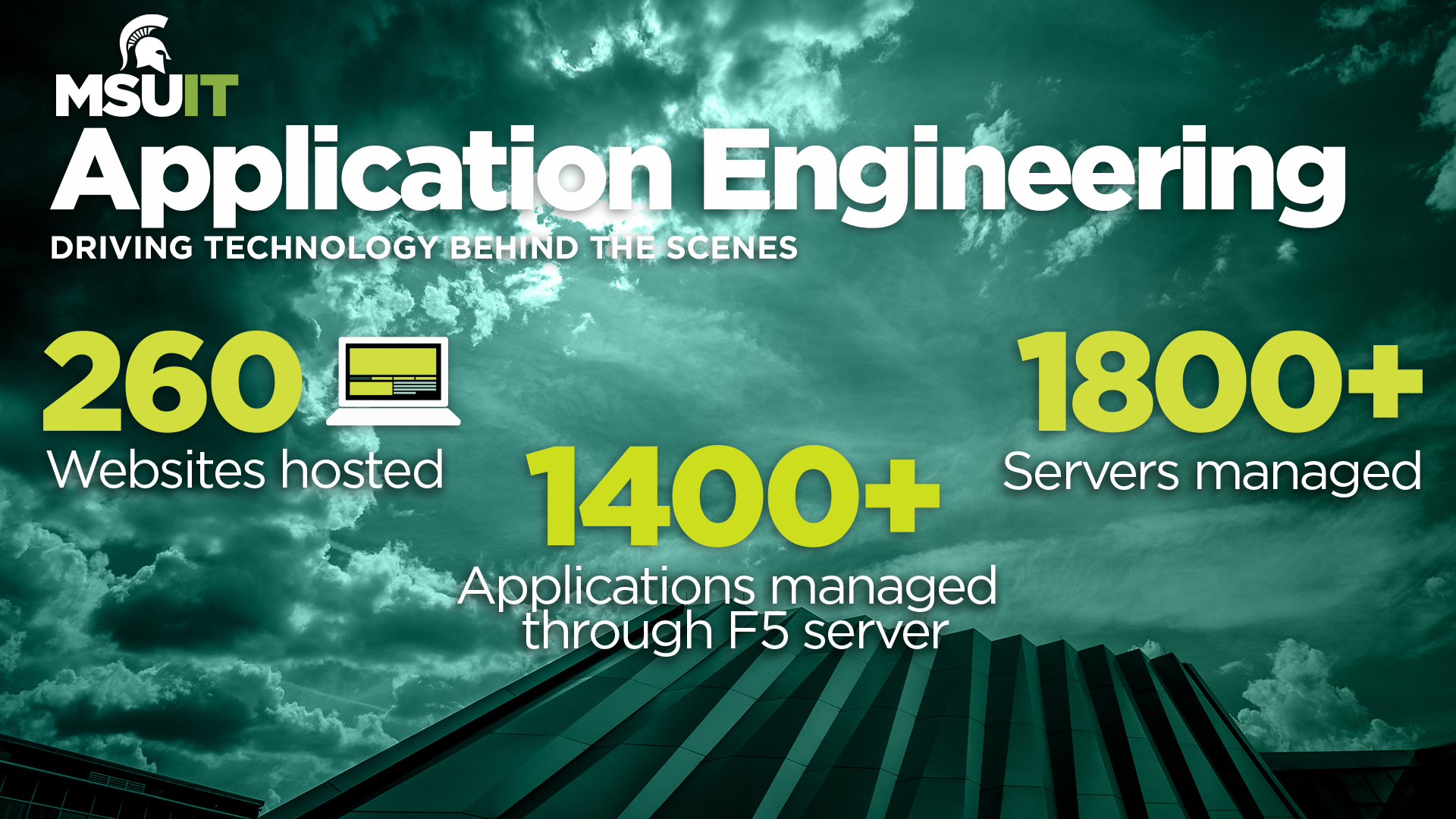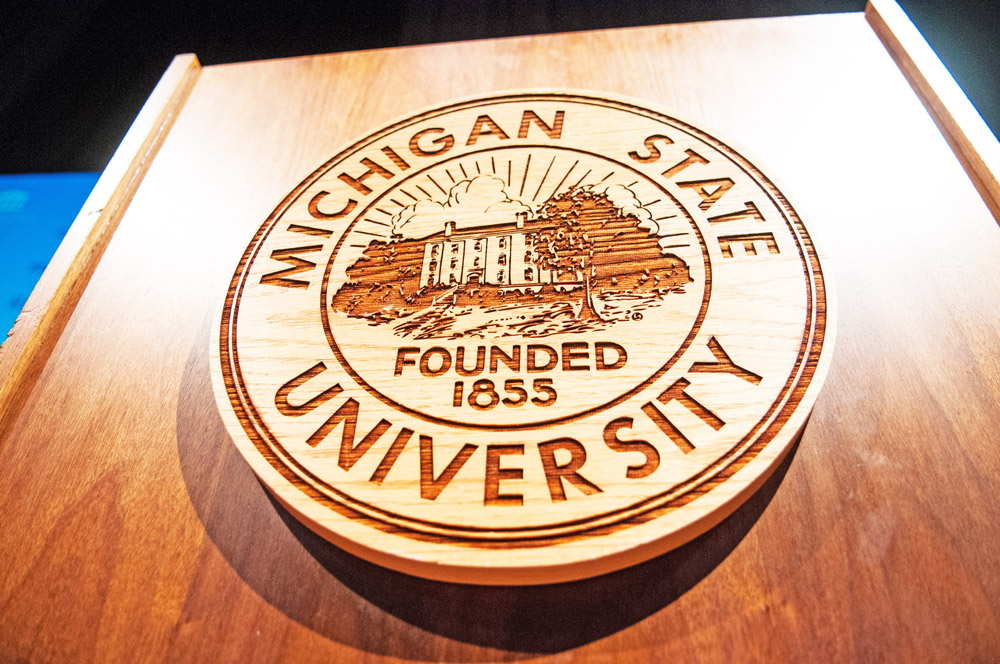 Their work goes largely unnoticed, but the impact Application Engineering staff have on day-to-day operations at Michigan State University is tremendous.
Their work goes largely unnoticed, but the impact Application Engineering staff have on day-to-day operations at Michigan State University is tremendous.
Responsible for managing nearly 1,800 servers on campus, more than 260 websites, and countless terabytes of data, the 11 staff that make up AppEng, as it’s referred to within MSU IT, are the stewards of the technology driving MSU.
“We provide the platforms that all of the other services ride upon,” said Jeffrey Utter, Manager of Application Engineering.
Simply put, AppEng exists to allow units on campus to focus on their primary goals and less on the technology needed to serve students, faculty, and staff.
“The team is built to take the stress and anxiety of managing technology off our units so they can focus on serving individuals,” said Liam Day, Assistant Director of Application Platforms. “We work with units so they can focus on what’s important to them and their consumers.”
AppEng’s Webhosting team was critical in helping stand up remote.msu.edu in the days leading to the University’s move to remote teaching, learning, and working in March of 2020. In addition, the F5 Administration team worked diligently, making sure sites such as president.msu.edu could handle the influx of new web traffic as President Stanley frequently communicated with the broader MSU community.
But the importance of the different functions of the team isn’t solely highlighted in times of adversity. Quite the opposite. The Managed Server Services, Product Administration, F5 Administration, and Webhosting teams are at their best when you turn on your computer, easily connect, and begin working without incident.
“Recognition isn’t necessarily what drives them in their daily motivations,” Utter said of his team. “They’re looking to improve on what we have in place to manage components, to set up automation, so it doesn’t impact our forward-facing services that affect university users. So we feel that sense of importance when we can pull that off in a way that doesn’t affect others.”
As an operational building block, the team is continually exploring options to reduce user impact through automation, which enables and empowers others in their work. One of the most significant projects the team is currently involved in is lifecycle management, ensuring university users utilize the most up-to-date and best-supported technology available.
“It’s the same story for many of the units we are working with; we are upgrading to keep ahead of the lifecycle curve,” Utter said.
For more information on the services provided by Application Engineering, a team within Enterprise Services, visit tech.msu.edu/service-catalog.


